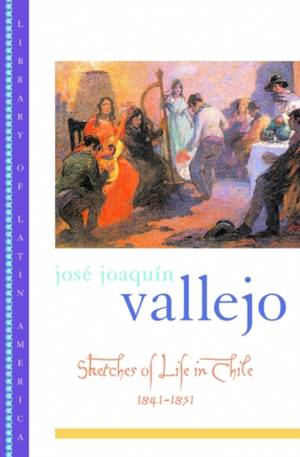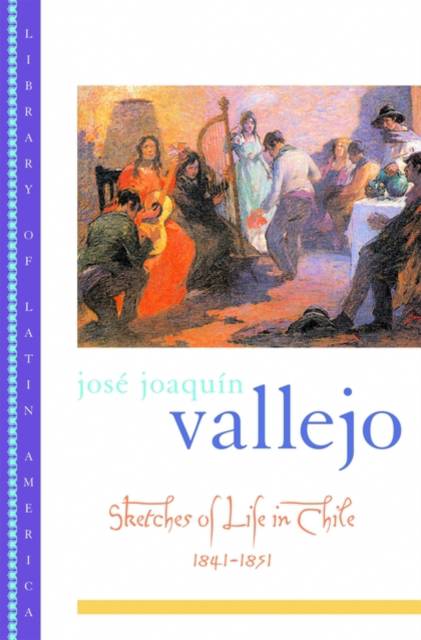
Bedankt voor het vertrouwen het afgelopen jaar! Om jou te bedanken bieden we GRATIS verzending (in België) aan op alles gedurende de hele maand januari.
- Afhalen na 1 uur in een winkel met voorraad
- In januari gratis thuislevering in België
- Ruim aanbod met 7 miljoen producten
Bedankt voor het vertrouwen het afgelopen jaar! Om jou te bedanken bieden we GRATIS verzending (in België) aan op alles gedurende de hele maand januari.
- Afhalen na 1 uur in een winkel met voorraad
- In januari gratis thuislevering in België
- Ruim aanbod met 7 miljoen producten
Zoeken
Omschrijving
Writing under the pseudonym "Jotabeche," José Joaquín Vallejo wrote forty-one short articles on Chilean life and society in the early republic. Known for their caustic wit, his writings were an instant success when they were first published in Chilean magazines and newspapers. This volume presents these vivid essays for the first time in English.
Vallejo made famous the style of writing termed "costumbrista"--sketches and vignettes of society and local customs. He focused on the Norte Chico, or the mining zone of Copiapó where he was born and where he lived most of his later life. His essays include vivid studies of mineworkers; the advancement of modernity in the steamships at Caldera; the religious, intensely cultural province of Copiapó; and the general atmosphere of liberalism beginning to pervade the country of Chile during that time.
Considered the founder of his country's "genuinely national literature," he is the first creative writer of stature to emerge in Chile after the country's wars of independence. A provincial northerner, his writings give a sense of what these parts of Chile looked and felt like during the years of the early Chilean republic, and are consequently of ultimate value.
Vallejo made famous the style of writing termed "costumbrista"--sketches and vignettes of society and local customs. He focused on the Norte Chico, or the mining zone of Copiapó where he was born and where he lived most of his later life. His essays include vivid studies of mineworkers; the advancement of modernity in the steamships at Caldera; the religious, intensely cultural province of Copiapó; and the general atmosphere of liberalism beginning to pervade the country of Chile during that time.
Considered the founder of his country's "genuinely national literature," he is the first creative writer of stature to emerge in Chile after the country's wars of independence. A provincial northerner, his writings give a sense of what these parts of Chile looked and felt like during the years of the early Chilean republic, and are consequently of ultimate value.
Specificaties
Betrokkenen
- Auteur(s):
- Vertaler(s):
- Uitgeverij:
Inhoud
- Aantal bladzijden:
- 224
- Taal:
- Engels
- Reeks:
Eigenschappen
- Productcode (EAN):
- 9780195128673
- Verschijningsdatum:
- 17/10/2002
- Uitvoering:
- Paperback
- Formaat:
- Trade paperback (VS)
- Afmetingen:
- 163 mm x 210 mm
- Gewicht:
- 290 g

Alleen bij Standaard Boekhandel
+ 67 punten op je klantenkaart van Standaard Boekhandel
Beoordelingen
We publiceren alleen reviews die voldoen aan de voorwaarden voor reviews. Bekijk onze voorwaarden voor reviews.









